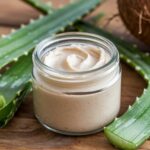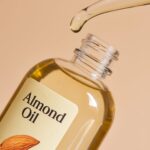- Rosehip oil has a comedogenic rating of 2, indicating low to moderate risk.
-
Quality and extraction methods influence its comedogenic potential.
-
High-quality, cold-pressed rosehip oil is less likely to clog pores.
Is your quest for flawless skin leading you to wonder if rosehip oil is the secret ingredient you’ve been missing? Or perhaps you’re worried that this much-hyped oil might actually be causing breakouts?
The truth is, when it comes to rosehip oil, the answer isn’t as straightforward as we’d like. The mixed opinions are enough to leave anyone confused and cautious. So, before you decide to add this golden elixir to your skincare routine, read on to discover whether rosehip oil is a friend to your skin or a foe in disguise.
What Does Research Say About Rosehip Oil’s Comedogenicity?
When it comes to determining whether rosehip oil is comedogenic, research offers mixed findings. The comedogenic rating of rosehip oil generally sits at a 2 on a scale of 0 to 5, where 0 is non-comedogenic, and 5 is highly comedogenic. This rating suggests a low to moderate chance of clogging pores, but the story doesn’t end there.
Rosehip Oil’s Comedogenic Rating: The Importance of Quality
A key factor in rosehip oil’s comedogenicity is its quality. According to Root Science, the method of extraction plays a role in its comedogenity. Rosehip oil derived solely from the seeds tends to have a lower comedogenic rating compared to oil extracted from a blend of seeds and skin. The latter may contain more oleic acid, a component that can increase the likelihood of clogged pores. This underscores the importance of sourcing high-quality rosehip oil to minimize potential risks.
Is Beeswax Non-Comedogenic? A Dive Into Research and Dermatologist Opinions
Balancing Benefits and Risks
Healthline notes that rosehip oil is rich in essential fatty acids and antioxidants, making it beneficial for most skin types. While the article does not explicitly classify rosehip oil as non-comedogenic, it highlights the importance of patch testing before use. The presence of linoleic acid, known for its skin-healing and hydrating properties, could make rosehip oil a valuable addition to skincare routines, especially for those dealing with acne. However, the emphasis remains on individual skin reactions, as what works for one person may not work for another.
The Need for More Research on rosehip oil and comedogenicity
Apostrophe highlights the lack of conclusive research on whether rosehip oil is comedogenic. The article discusses the potential benefits of rosehip oil for acne due to its high linoleic acid content, which may reduce inflammation. Yet, it cautions against drawing definitive conclusions without more targeted studies.
Dermatologists Weigh In: Is Rosehip Oil Safe for Acne-Prone Skin?
Dermatologists’ opinions on rosehip oil vary, reflecting the complexities of skincare. Two prominent voices in the field offer contrasting views.
Dr. Deanne Mraz Robinson: A Vote of Confidence
Dr. Deanne Mraz Robinson supports the use of rosehip oil, citing its non-comedogenic nature compared to other oils. She notes that rosehip oil has long been trusted for its ability to promote healthy skin without clogging pores. Her endorsement aligns with the idea that rosehip oil is generally safe for most skin types, including those prone to acne.
Dr. Davin Lim: A More Cautious Approach
On the other hand, Dr. Davin Lim, another respected dermatologist, advises caution. He acknowledges rosehip oil’s benefits but warns that it can be “potentially comedogenic.” Dr. Lim recommends using rosehip oil primarily on inflammatory non-cystic acne spots, such as pustular and papular acne, rather than on areas prone to blackheads.
Real User Experiences: The Good, the Bad, and the Uncertain
The real test of any skincare product lies in the experiences of those who use it. Rosehip oil is no exception, with users reporting a wide range of outcomes.
Positive Experiences: Healing and Hydrating Without Clogging
Some users believe that rosehip oil has the ability to moisturize and heal the skin without causing breakouts.
A reviewer from Beauty Harbour claims that rosehip oil is “gentle, not comedogenic,” and suitable for all skin types. Despite experiencing an initial breakout, the reviewer continued using the oil due to its anti-inflammatory properties, which helped reduce the severity of eczema and other skin conditions. They emphasized that rosehip oil is easily absorbed, reducing the risk of clogged pores.
A beauty editor at Adore Beauty echoes this sentiment, noting that:
While rosehip seed oil is not entirely non-comedogenic, its low comedogenic rating makes it a versatile option for various skin types.
The editor highlights the oil’s hydrating effects and overall skin benefits, praising The Ordinary’s Cold-Pressed Rose Hip Oil for its simplicity and efficacy.
Negative Experiences: Breakouts and Sensitivity Issues
Not all users have positive experiences with rosehip oil. For some, the oil has led to significant skin issues, particularly for those with sensitive or acne-prone skin.
A user reported,
“Tried this because I wanted to fade some red marks, but it gave me the worst breakout in years, and now I can see those pimples have left rolling scars.” They advise against using it, especially for those with sensitive skin, stating,
“I’d advise anyone who has sensitive skin not to try this; it’s not worth the risk”.
A user expressed skepticism about rosehip oil, noting that
“rosehip oil doesn’t seem to be a favorite here,” indicating that it hasn’t worked well for many in the community. They shared their personal experience, stating, “I use it daily as part of my AM routine,” but acknowledged mixed results among others.
The Verdict: Should You Use Rosehip Oil?
So, is rosehip oil comedogenic? The answer is not straightforward. The oil’s comedogenicity largely depends on factors like its quality, how it’s used, and individual skin types. Here’s a summary of the key points to consider:
Low to Moderate Comedogenicity: Rosehip oil generally has a comedogenic rating of 2, indicating a low to moderate risk of clogging pores. However, this rating can fluctuate based on the oil’s extraction method and quality.
Individual Skin Reactions: Some people may find rosehip oil beneficial for hydration and healing, especially those with dry or normal skin. However, individuals with sensitive or acne-prone skin might experience breakouts, particularly if the oil is not of high quality.
Consult With a Dermatologist: If you have concerns about using rosehip oil, especially if you’re prone to acne, it’s wise to consult a dermatologist. They can provide personalized advice based on your skin type and condition.
Quality Matters: Always choose high-quality, cold-pressed rosehip oil from reputable sources. Poor-quality oils with higher oleic acid content are more likely to be comedogenic.
Is Rosehip Oil Right for Your Skin?
Rosehip oil may have hydrating properties, but its potential to clog pores remains a topic of debate. Research suggests a low to moderate comedogenic rating, and dermatologists offer mixed opinions. User experiences also vary widely, making it clear that rosehip oil is not a one-size-fits-all solution. By understanding the factors that influence its comedogenicity, you can make an informed decision about whether rosehip oil belongs in your skincare regimen.

I’m a devoted organic skincare enthusiast, passionate about the natural, wholesome goodness that organic products bring to our skin.
Organic skincare isn’t just a hobby for me—it’s a lifestyle. Every product I use, recommend, and write about has been carefully chosen for its purity and effectiveness. Everything I write about is backed by scientific studies, dermatologists’ opinions, and user experiences.
I also excel at tackling skincare challenges with innovative, organic solutions.


